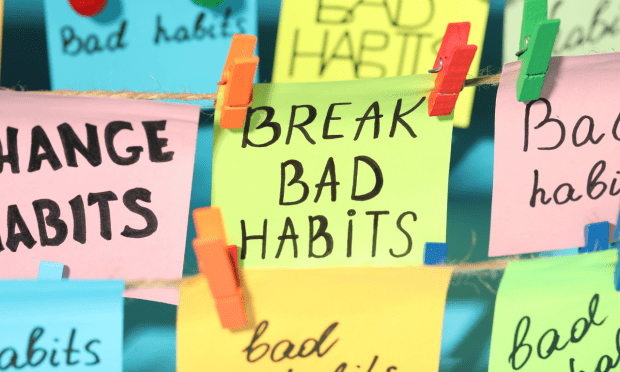Have you ever wondered why we do things without even thinking about them? Like checking our phone first thing in the morning or biting our nails when we’re anxious? The answer lies in our habits – automatic behaviors that we’ve formed over time. But how do habits form, and why are they so hard to break?
This is where the science of habits comes in. By understanding the psychology behind our behaviors, we can learn to break bad habits and form new ones that serve us better. From the cues that trigger our habits to the rewards that reinforce them, every aspect of our behavior can be understood through the lens of habit formation.
So whether you’re trying to quit smoking, exercise more, or simply be more productive, understanding the science of habits is key to achieving your goals. In this article, we’ll delve into the fascinating world of habit formation and explore the latest research on how we can use this knowledge to improve our lives.

The Power of Habit
By Charles Duhigg
⏱ 10 minutes reading time
🎧 Audio version available
Types of Habits
Habits can be categorized as good, bad, or neutral. Good habits are those that contribute to our health, happiness, and success, such as exercising regularly or practicing mindfulness. Bad habits, on the other hand, are those that are detrimental to our well-being, such as smoking or overeating. Neutral habits are those that have no real impact on our lives, such as brushing our teeth or tying our shoes.
It’s important to note that what constitutes a good or bad habit can vary from person to person. For example, some people may consider drinking alcohol in moderation to be a good habit, while others may consider it a bad habit. Ultimately, the impact of a habit on our lives depends on our individual goals and values.
How Habits are Formed
Habits are formed through a process called habituation, which occurs in the basal ganglia of the brain. This process begins with a cue, which triggers the behavior. The behavior is then performed automatically, without conscious thought, and is reinforced by a reward.
Over time, the basal ganglia recognizes the pattern and stores it as a habit. This allows us to conserve mental energy and focus on more important tasks. The stronger the habit, the more difficult it is to break, as the behavior becomes deeply ingrained in the brain.
To form a new habit, it’s important to identify the cue and reward associated with the desired behavior. For example, if you want to start exercising regularly, the cue may be a specific time of day, and the reward may be the feeling of accomplishment or the release of endorphins.
Breaking Bad Habits
Breaking bad habits can be difficult, as they are deeply ingrained in the brain. However, it is possible to rewire the brain through a process called neuroplasticity. This involves creating new neural pathways through repeated practice of a desired behavior.
To break a bad habit, it’s important to identify the cue and reward associated with the behavior. Once these are identified, it’s possible to replace the behavior with a more positive one that still satisfies the reward. For example, if the cue for smoking is stress, the reward may be relaxation. By finding a healthier way to relax, such as practicing deep breathing or taking a walk, it’s possible to break the habit of smoking.
Developing Good Habits
Developing good habits requires consistency and routine. By performing a behavior repeatedly at the same time and in the same way, it becomes easier to form a habit. It’s also important to set achievable goals and track progress, as this provides motivation and a sense of accomplishment.
Creating a supportive environment can also be helpful in forming new habits. This may involve finding a workout buddy or joining a group that shares your goals. Social support can provide accountability and encouragement, which can be crucial in maintaining motivation.
The Impact of Social Influence on Our Habits
Social influence can play a powerful role in shaping our habits. We are influenced by the behaviors of those around us, whether we realize it or not. This can be both positive and negative, depending on the behaviors of our social circle.
To develop good habits, it’s important to surround ourselves with positive role models who share our goals. This may involve finding a mentor or joining a group that shares our interests. By surrounding ourselves with like-minded individuals, we can create a supportive environment that encourages positive behavior.
Navigating Environmental Triggers and Cues
Environmental triggers and cues can also play a significant role in our habits. These may include visual cues, such as seeing a pack of cigarettes or a plate of cookies, or environmental triggers, such as a stressful situation at work.
To navigate these triggers, it’s important to identify them and develop strategies for avoiding or coping with them. This may involve removing tempting items from our environment or finding healthier ways to cope with stress, such as practicing mindfulness or going for a walk.
The Benefits of Mindfulness and Self-Reflection in Habit Formation
Mindfulness and self-reflection can be powerful tools in habit formation. By becoming more aware of our thoughts, feelings, and behaviors, we can identify patterns and make conscious decisions about our actions.
Practicing mindfulness can also help us to be more present in the moment, which can be helpful in breaking bad habits. By becoming more aware of our surroundings and our internal state, we can recognize cues and triggers that may lead to unwanted behaviors.
Self-reflection is also important in habit formation, as it allows us to evaluate our progress and make adjustments as needed. By reflecting on our successes and failures, we can learn from our experiences and make more informed decisions about our behavior.
Related: 5 Habits That Made Bill Gates One of The Richest People In The World
Conclusion
In conclusion, understanding the science of habits is key to achieving personal growth and behavior change. By recognizing the cues and rewards associated with our habits, we can break bad habits and form new ones that serve us better. Developing good habits requires consistency, routine, and a supportive environment, while navigating environmental triggers and cues requires awareness and strategies for coping.
Mindfulness and self-reflection can also be powerful tools in habit formation, allowing us to make conscious decisions about our behavior. Ultimately, the key to success in habit formation is understanding the psychology behind our behaviors and using this knowledge to make positive changes in our lives.
What Is Snapreads?

With the Snapreads app, you get the key insights from the best nonfiction books in minutes, not hours or days. Our experts transform these books into quick, memorable, easy-to-understand insights you can read when you have the time or listen to them on the go.
